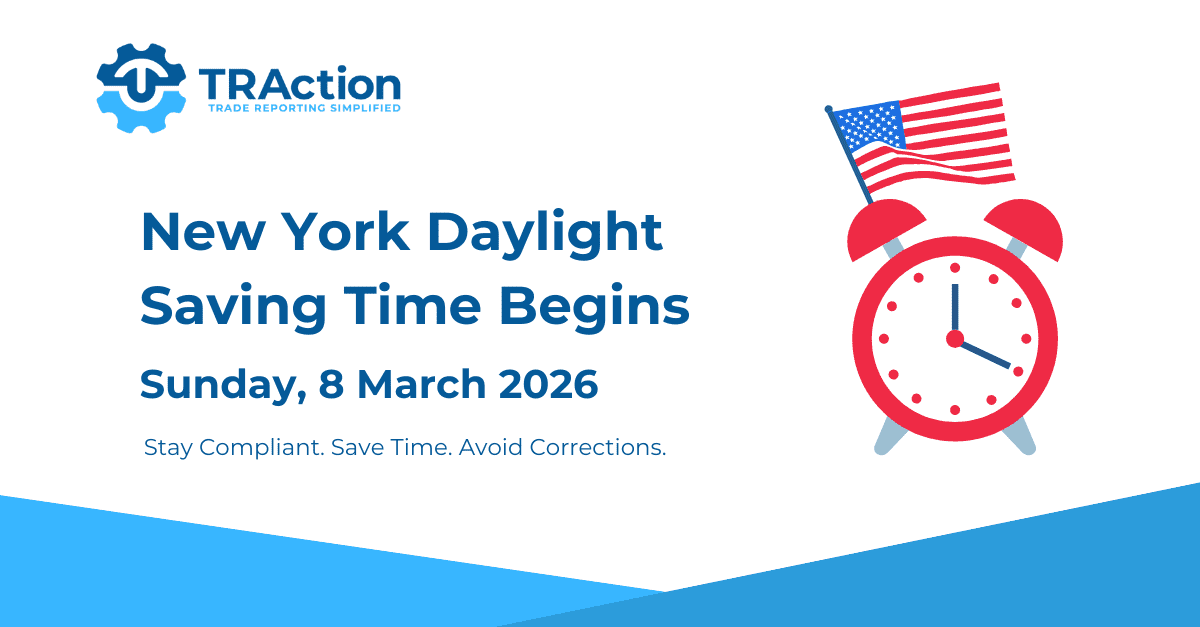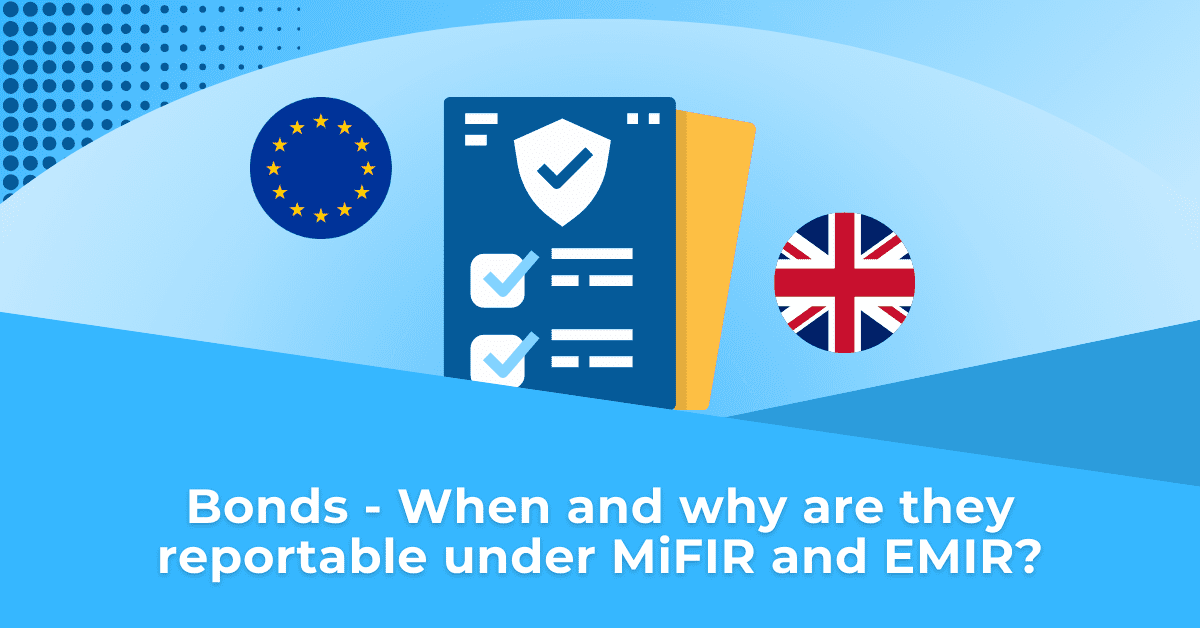Regulators require complete, accurate and timely transaction reports in order for them to be able to monitor, detect and disrupt any potential market abuse or mitigate issues that could have a significant impact on markets.
Global trade reporting regulations have aligned in putting the onus on reporting entities to notify their regulator of incidents and potential incidents which may result in their non-compliance with the regulations. There is an expectation that reporting entities take a pro-active stance in notifying their regulators of trade reporting issues. The FCA has recently become an example of a regulator that has penalised a financial firm for their failure to submit a large number of transaction reports under MiFIR.
The main focus for reporting entities, to avoid getting penalties from regulators, should be on prompt and accurate reporting and notification of errors or issues with their trade reporting to their regulators. Other areas to work on also include having competency in your control framework, change management, data governance, education and third-party assistance.
Summary of FCA penalty for MiFIR reporting failures
The FCA issued a fine to a UK based broker on 27 January 2025, for failure to report thousands of transaction reports in relation to its CFDs. This was the first fine issued in relation to MiFIR and the penalty amount was determined according to the FCA’s Five-Step Framework (i.e. consideration of disgorgement, seriousness of breach, mitigating circumstances, deterrence adjustment and a final discounting).
The penalty amount worked out to be £99,200. This reflects a discount from £141,800 due to the speed and co-operation of the penalised broker.
Factors which were considered by the FCA along with its Five-Step Framework included whether there was profit or other gain to the broker in non-reporting, the delay in notifying the regulator upon its discovery of the failed reporting, the scale of the unreported reporting and the speculative and leveraged nature of CFD trading.
What should be done to avoid being penalised?
TRAction suggests reporting entities work on the below areas in order to avoid breaching the trade reporting regulations and therefore reduce exposure to any regulatory enforcement:
Prompt & accurate reporting: Perform your trade reporting on time and accurately. Ensure this works well within your operations. If there are regular trade reporting issues or issues of the same nature reoccurring, tackle it sooner rather than later. Also, focus on the management of exceptions and do your back-reporting promptly (or within agreed timeframes).
- Prompt regulatory notification: Notify your regulator formally in writing and promptly. Do not assume that if the regulator has contacted you that this counts as ‘your’ notification to the regulator. We discuss this below in relation to the FCA MiFIR penalty. Be proactive and show initiative in remediation of the issues.
- Control framework: Implement tighter compliance policies and processes, including having regular reconciliation in relation to your trade reporting functions and breach reporting.
- Change management: Use robust change management practices, including trade reporting subject matter experts and have efficient processes in place for dealing with staff turnover and absences. This also ties in with the below on being aware of upcoming regulatory changes.
- Education: Stay informed about the current regulations that apply to your firm and be apprised of impending updates to regulations – prepare ahead of time rather than at the last minute.
- Human Error/Minimising manual processing: Companies should move away from manual processing and workflows given it is a key cause of error. Integrations between trading platforms, bridges and delegated reporting providers are beneficial for automating daily tasks and minimising or even eliminating human error in reporting. For example, there could be a direct exchange of raw trade data across service providers without the need for human intervention. Where manual file manipulation is occurring each day, this is a key risk point for your business.
- Third party assistance: If in doubt about whether you have failed to trade report or have done so in an accurate manner, engage a specialist third party to assist in reviewing your compliance and carry out their instructions on remediation promptly. Again, this is mentioned in the FCA MiFIR Penalty.
- Data sources: Maintain clear data lineage, better record retention practices and clear and accurate identification of source data.
In putting together the above, we have also referred to the findings and analysis of the FCA under the FCA Market Watch 81 which was carried out in relation to the FCA’s supervision of the UK MiFID transaction reporting regime.
The FCA’s overall observations of the conduct of many UK firms is that there is still incomplete and inaccurate reporting of transactions. They identified weaknesses in change management, reporting process and logic design, data governance, control frameworks and governance and resourcing. Please refer to our article here for a more detailed analysis of the observations and findings under the FCA Market Watch 81.
Background – FCA MiFIR Penalty
Although the FCA has fined a number of firms for trade reporting breaches in the past, this is the first time the FCA issued a penalty concerning MiFIR transaction reporting breaches since MiFIR came into effect in 2018.
The Final Notice issued by the FCA to a UK based broker set out the reasons for being penalised £99,200. The broker failed to submit 46,053 transaction reports concerning single-stock contracts for difference (CFDs) from October 2022 to March 2023 and therefore breached Article 26(1) of MiFIR. The fine amount was reduced by 30% given there was early resolution and without such discounting, the penalty would have been £141,800. Failure to report these trades could have led to market abuse being undetected. This is because the line of business (i.e. single-stock CFD trading) is one that the FCA finds vulnerable given the speculative and leveraged nature of CFDs and the nature of the underlying asset.
The FCA’s executive director of enforcement and market oversight, Steve State noted:
‘As a data-led regulator it is vital that firms submit accurate and timely transaction reports, and promptly bring any failures to our attention. [The Broker] failed to do this, which meant market abuse could have flown under the radar and risked the integrity of the market.
Our specialist teams constantly monitor market data in real time to track any signs of misconduct.’
Summary of reasons why the FCA issued the fine
- Knowledge – The broker has been subject to the reporting requirements under MiFID II and MiFIR since January 2018 and therefore was aware of the requirement to submit reports under Article 26(1).
- Broker’s own assessment was poor and lagged – The FCA noticed a potential discrepancy in trade data and contacted the broker in May 2023 to clarify. Weeks later the broker confirmed there was a failure to report its single-stock CFD business executed through its single corporate account (noting it had two corporate brokerage accounts). The broker initially suspected there were around 6,000 trades that were not submitted for reporting (Unreported Trades). Then 3 months later in July 2023, the broker said the amount of Unreported Trades may have been up to 50,000. Further engagement between the broker and the FCA occurred for the next 5 months. However, it took the broker a year to provide a complete and accurate figure to the FCA on the number of Unreported Trades through its single corporate account.
- Third party review – the broker engaged a third party to review its compliance with MiFIR transaction reporting and the third party anticipated that a breach notification and back-reporting would be required.
Formal breach notification to the FCA was delayed – Between mid- March and end of May 2023, when the broker confirmed it had missing trade data, it did not proactively contact the FCA regarding the breach. The formal breach notification was sent on 6 July 2023. The FCA expected that it would be notified in a timely manner and not only once it approached the reporting entity.
The Five-Step Framework – Factors considered by the FCA in working out a penalty amount
The FCA’s policies for imposing fines are set out in Chapter 6 of DEPP (Decision Procedure and Penalties Manual) – 6.5A. A Five-Step Framework is applied to determine the appropriate level of financial penalty – see below.
Step 1 – Disgorgement – The intent is to deprive a firm of the financial benefit derived from their breach where it can be quantifiable. Here, the broker did not derive any financial benefit from the breach. The figure at step 1 is therefore ‘0’.
Step 2 – Seriousness of breach – Here the revenue is not an appropriate indicator of harm or potential harm caused by the broker’s breach. The FCA looked at the Unreported Trades and this is what would indicate harm or potential harm. The value attributed to each Unreported Trade was £2 and with 46,053 Unreported Trades, amounted to £92,106.
In accordance with DEPP, percentages and levels of seriousness factors were considered (i.e. Level 1 – 0%, Level 2 – 10%, Level 3 – 20%, Level 4 – 30% and Level 5 – 40%). The seriousness level of 3 was considered appropriate (given that there was little profit to be gained and no loss or risk to the consumers, investors or other market users). The formula with the seriousness factor applied became: 20% × £92,106 (from Step 2) = £18,421.20.
Step 3 – Mitigating and aggravating factors – This is where the FCA is able to increase or decrease the amount of the financial penalty at Step 2 considering factors that may aggravate or mitigate the breach. The FCA considered that on the whole, the figure at Step 2 should be increased by 10%. This was given previous failures by the broker’s business, its failure to bring the failed transaction data reporting to the FCA’s attention and the amount of industry guidance and material given on this topic. This led to the formula of: (10% x £18,421.20) plus £18,421.20 = £20,263.32
Step 4 – Adjustment for deterrence – If the FCA considers the figure arrived above in Step 3 is insufficient in deterring the breach or others from committing similar breaches, the FCA can increase the penalty. A multiplier of 7 was applied. This multiplier was determined based on other factors considered such as, the:
- fine amounts need to deter and therefore not a cost that brokers factor into their operations;
- value of the fine is too small in correlation to the actual breach as brokers can make substantial profits; and
- fine should send a message to the broker and other brokerages that fulfilling its reporting obligations is essential to its operations and sufficient resources and systems should be expended accordingly.
The formula became: £20,263.32 (from Step 3) x 7 (multiplier) = £141,843.24.
Step 5 – Settlement discount – As explained, given the speediness of settlement and resolution by the broker the amount in Step 4 was reduced by 30% i.e. 30% x £141,843.24 = £99,200 (rounded down).
How can TRAction assist?
Should you need further clarification on the above issues or have any questions on your trade reporting or if have failed submission of your trade reporting on time or accurately, need back-reporting and assistance with your errors and omissions notification to your regulator, please get in touch with us.




